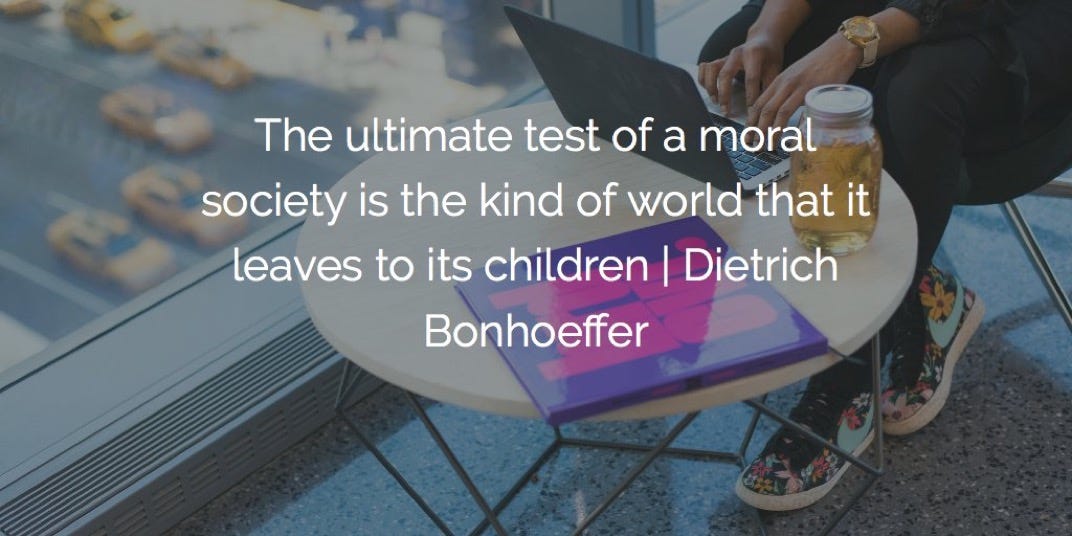From the earliest moments of systematic knowledge acquisition or formal schools, Aristotle classified the pursuit of knowledge into three categories: the theoretical pursuit of truth for truth’s sake, the productive discipline of making things, and the practical discipline of making judgments. Not much has really changed over the years because each of these disciplines suggests that the learner was central to the process of learning as a life-long learner, which subsequently transferred this knowledge into something usable that lead to action and yet guided by principles of what is good for all. Learning from that point forward encouraged the individual to pursue knowledge through inquiry that centred around the constructivist principle attaching meaning to learning outcomes or concepts. But somewhere along the way, education was limited to the elite upper class heavily influenced by the Industrial Age, restricting many from accessing formal learning opportunities.
That was the past. As learning theories have swung like a pendulum over the years, and many repeating themselves, we have moved into the 21st Century, and it is imperative that we base all educational philosophies upon proven theory of understanding and knowing the truth (knowledge) that places the burden of learning squarely on the individual learner.
While we are inundated with all kinds of initiatives and approaches to teaching learning these days, like RTI – Response to Intervention, CRM – Collaborative Response Model, Adaptive Schools, Math for Success, Brain Based Learning, Personalized Learning, Differentiated Instruction, and more, we must keep one thing central, the students. What sometimes gets lost with teachers under the pressure of learning a new approach is the learning itself. We need to stop and ask ourselves, “Is this just good practice around students and learning, or is it a new initiative that will fade into the past like so many have before?” Recently, a new research study released by Oxford University stated that in the next 25 years, 47% of the jobs will be gone due to computerization, machination and robotics. While this might scare us reading this, it is ever more increasingly important to teach students how to learn. It is imperative then to assist our students in the process of being a life-long learner, and when we have done so, we have helped them for life.
In the 21st Century, placing the learner at the centre of all learning experiences needs to be aided by technology, makerspaces, experiential learning, and other ways to engage the learner.
- Learners need to develop skills, knowledge, and competencies that will benefit them in school and life,
- With outcomes and standards established, we need to support learners in attaining these outcomes with means other than textbooks and worksheets,
- Learners are supported in the construction of knowledge that links past and present knowledge with outcomes in meaningful ways through connections to real life,
- Greater emphasis needs to be placed on literacy and numeracy skills for lifelong learning,
- Assisting learners in developing learning pathways based on intrinsic motivation that integrate personal values, interests, and goals,
- Each learner is considered unique, allowing flexibility of where, when and how they are able to learn,
- Engaging parents as an active and essential role in creating meaningful opportunities for the learner,
- Supporting teachers in their role as facilitators of learning through professional development and with their Professional Learning Communities (PLC’s),
- Engage learners through technology connecting them to a world of information,
- Incorporating technology into the learning experience that embraces creativity as the highest order of thinking,
- Understanding where students come from and what trauma they may have experience that is impeding their ability to learn.
In the end, it simply comes back to putting kids needs first over those of ourselves as educators. It’s also about treating the students as we wish we were treated as students. When we show respect to students, we create the fertile soil where learning can and will happen. Each student will learn at different rates and by different methods, but in the end, they are still learners, and as a teacher, I have been granted the wonderful opportunity to change lives that ultimately changes their future.
